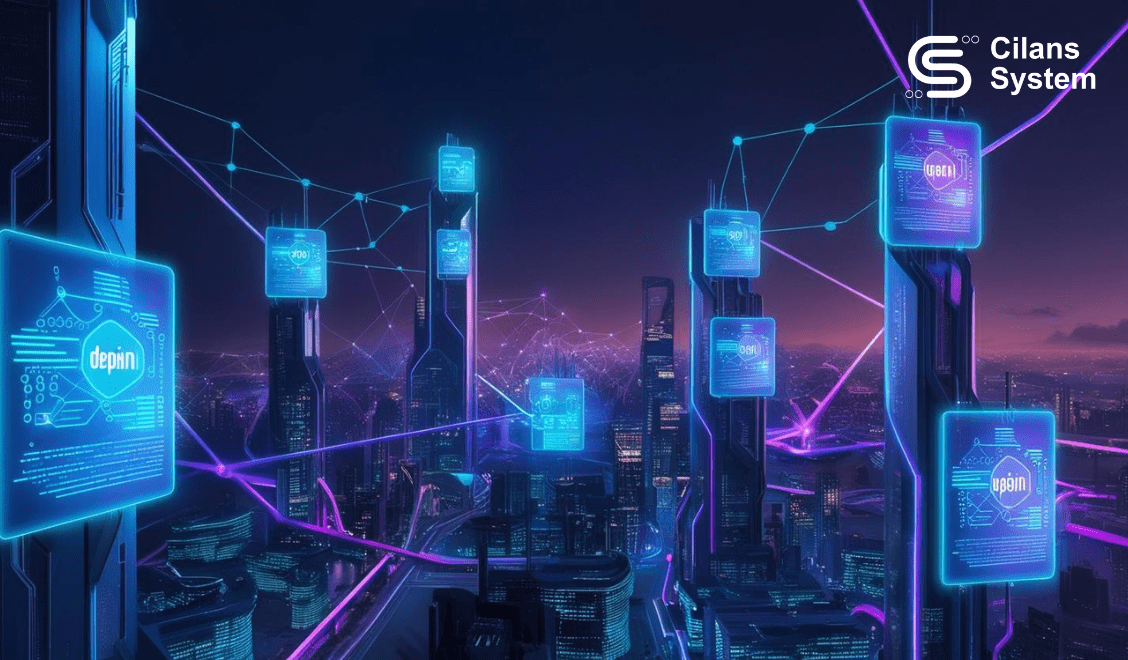
No Cryptocurrency ❎, Know Cryptocurrency! ✅
August 10, 2024
DePIN: The Crowdsourced Blockchain Innovation for coming years
December 10, 2024In this blog, you’ll learn about what Blockchain-as-a-Service (BaaS) is, explore real-world examples, and understand the technical differences between BaaS and SaaS. We’ll also discuss whether blockchain can be considered a form of SaaS and look ahead to the future of BaaS. By the end, you’ll have a clear understanding of these key concepts. For more blogs on emerging topics, you may visit here.
Key Takeaways
Blockchain-as-a-Service (BaaS) refers to third-party cloud-based infrastructure and management services for companies developing and operating blockchain applications.
BaaS functions similarly to web hosting, managing the back-end operations for blockchain-based applications or platforms.
BaaS has the potential to drive widespread adoption of blockchain technology across industries.
BaaS vs. SaaS: A Technical Comparison
While BaaS and SaaS share similarities in delivering cloud-based services, they differ significantly in their application and infrastructure requirements.
SaaS (Software as a Service): SaaS provides access to software applications via the internet, allowing users to utilize the software without managing the underlying infrastructure. For example, Google Workspace and Microsoft 365 are SaaS offerings where users can access office applications without worrying about servers or updates.
BaaS (Blockchain as a Service): BaaS offers the infrastructure and tools needed to build and operate blockchain applications. Unlike SaaS, BaaS requires more complex infrastructure management, including maintaining a distributed ledger, ensuring data integrity, and managing consensus mechanisms. A real-life example of BaaS is IBM’s Blockchain Platform, which allows businesses to deploy and manage blockchain networks without needing to create the infrastructure from scratch.
Example of Blockchain-as-a-Service (BaaS)
IBM, AWS, Oracle, Alibaba, and SAP are among a few large players that offer BaaS solutions. Consider Hyperledger Cello, a BaaS-like blockchain module toolkit that provides an operational dashboard for deploying, managing, and operating a blockchain. This tool simplifies the process of creating and maintaining a blockchain, similar to how a web hosting service manages the backend operations of a website.
In essence, BaaS could be the catalyst for the broader adoption of blockchain technology across various industries. Instead of developing and running their own blockchains, businesses can now outsource these technically complex tasks and focus on their core functions.
Is Blockchain an SaaS?
Blockchain shares some similarities with SaaS, particularly in how it’s delivered and maintained by a third-party entity. However, blockchain’s infrastructure requirements and the complexity of managing distributed ledgers set it apart from traditional SaaS offerings.
- Scalability
- Ease of infrastructure setup – Easy setup workflow process
- Programmability
- On-premise preassembled solution vs. Cloud-based hosted solution
- Analytics dashboard, including traceability
- Audit tools to study transactions
- Supports multiple blockchain platforms like Quorum, Corda, and Hyperledger
- Governance and regulatory compliance know-how
- Quick and reliable customer support service
- Clear pricing plans
The Future of Blockchain-as-a-Service
As blockchain technology continues to evolve, more companies are expected to seek blockchain solutions. BaaS will likely play a crucial role in making blockchain accessible and cost-effective, driving further innovation and adoption in the industry. The evolution of BaS is likely to promote faster adoption of use cases like document management and tracking, contract execution with transparency, etc.
Nikhil Shah and Lokesh Joshi,
Cilans Systems




